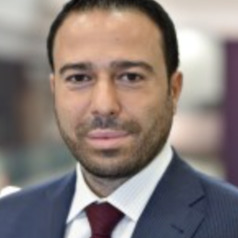
Nikolaos Papanikolaou
Senior Lecturer in Finance, Newcastle University
My research interests are as follows:
Banking: risk management, regulation & supervision, market structure & competition, efficiency & productivity analysis.
Financial accounting: transparency, disclosure, data manipulation, fraud.
Finance: financial engineering, securitisation, financial derivatives, off-balance-sheet leverage, hedging, speculation, Fintech, alternative finance, innovation.
Financial stability: systemic risk, procyclicality, liquidity, contagion, compliance.
Monetary economics: monetary policy transmission, quantitative easing, interest rates and economic growth, bank stress tests.
Corporate finance: earnings management, corporate governance, corporate culture, reputational risk.
I have conducted a number of research projects individually and in collaboration with scholars from UK Universities and also from abroad, and have developed a broad research network. My research has been published in a number of highly-ranked (ABS 3*) academic journals (Journal of Banking and Finance; Journal of Financial Stability; Journal of Financial Services Research; Financial Markets, Institutions & Instruments; Business Strategy and the Environment; Economics Letters; European Journal of Finance, etc.). I have presented my studies in numerous international conferences and other high-impact events. In this context, I have received several awards and distinctions for my research.
I have worked at the Business School of Bournemouth University as a Senior Lecturer (Research) in Accounting and Finance. Before joining BU, I was working as Assistant Professor in Banking and Finance at the University of Sussex. Furthermore, I hold the position of Adjunct Associate Professor at the University of Luxembourg and also various academic positions at the University of Glasgow, University of Bath, and University of Essex. In the recent past, I have held visiting academic positions at Stern School of Business at New York University, the Department of Economics at the University of Illinois, and the Department of Banking and Finance at Chulalongkorn University in Thailand.
Less ![]()
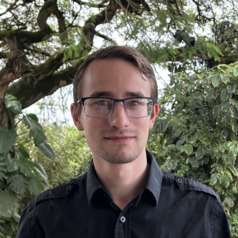
Nikolay Malkin
Chancellor's Fellow (AI and Datascience), School of Informatics, University of Edinburgh
Website: https://malkin1729.github.io/
Excerpt:
I work on algorithms for deep-learning-based reasoning and their applications. I am specifically interested in the following subjects.
- Machine learning for generative models, in particular, induction of compositional structure in generative models and modeling of posteriors over high-dimensional explanatory variables (including with continuous-time (diffusion) generative models). Much of my recent work is on generative flow networks, which are a path towards inference machines that build structured, uncertainty-aware explanations for observed data.
- Applications to natural language processing and reasoning in language: what large language models can do, what they cannot do, and how to overcome their limitations with improved inference procedures. I view human-like symbolic, formal, and mathematical reasoning via Bayesian neurosymbolic methods as a long-term aspiration for artificial intelligence.
- Applications to computer vision: notably, below you can find my work on AI for remote sensing (land cover mapping and change detection), which can be used for tracking land use patterns over time and monitoring the effects of climate change.
Less ![]()

Nil Özçaglar-Toulouse
Professeure des universités, LUMEN (ULR 4999), Université de Lille
Nil Özçaglar-Toulouse est professeure des universités à l'Université de Lille (Lumen, ULR 4999).
Ses recherches portent sur la transformative consumer research (bien-être), la culture de consommation (résistance des consommateurs, consommation éthique, acculturation du consommateur, projets identitaires) et le marketing social et ses incidences sur les politiques publiques).
Elle a été rédactrice en chef de la revue « Recherche et applications en marketing » (2014-2018), et siège actuellement au comité scientifique de recherche et applications en marketing, ainsi qu'au comité de rédaction du Journal of Marketing Management, Qualitative Market Research et Journal of Marketing in Brazil.
Elle est par ailleurs active au sein de l’Association française du marketing, de l’Association for Consumer Research et du Consortium of Consumer Culture Theory.
Less ![]()

Nils Markusson
Lecturer in Environmental Politics, Lancaster University
The core of my interest is about the politics of environmental technology. I want to understand the relationship between how we develop and use technology in response to environmental problems on one hand, and political processes at varying scales in society on the other.
I am a social scientist, with a background in engineering, innovation policy, innovation studies and science & technology studies (STS), and most recently cultural political economy. Much of my work is done in multi- and interdisciplinary collaborations, spanning social science, natural science, engineering and the humanities. I am a qualitative researcher, and favoured data sources include documents and interviews.
Less ![]()
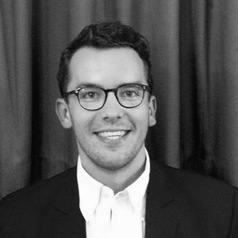
Nils Röper
I'm a doctoral researcher focusing on the political economy of pension and financial systems.
Less ![]()
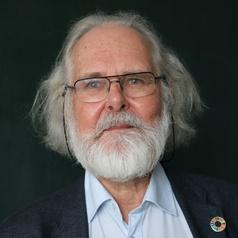
Nils Christian Stenseth
Professor and Chair, Centre for Ecological and Evolutionary Synthesis (CEES), University of Oslo
Research interests:
Population biology (ecology and genetic structuring); large-scale ecological and evolutionary patterns; effects (ecology and evolution) of climate variation; terrestrial, marine and freshwater systems.
I am a Core Member, Research Professor and the Chair of CEES. In addition, I am a Chief Scientist at the Institute of Marine Research.
My research interests span a broad spectrum of ecological and evolutionary topics, most of which are rooted in population biology. Before the early 1990s, much of my work was purely theoretical. Later, I have adopted the research strategy of 'asking' available data what the underlying ecological or evolutionary process might most likely be - all within a theoretical perspective. I strongly favour comparative studies - by comparing similar features between different (but comparable) systems, we typically learn more than we otherwise would have done. Variations in population densities in time and space - and the underlying demographic processes - have been a main interest of mine over the years. An important example is the interdependent relation between density-dependent and density-independent processes, where the ecological effect of climate is an important example of the latter.
Most of my work relates to basic issues. (I have never claimed that my research is of any immediate use, although I do hope it will be in the long run.) However, I find great pleasure in working on more applied issues as well; I have never been ashamed of my research being of practical use here and now. These applied interests have brought me into work on pest control (e.g., rodents in Africa), harvesting (marine and terrestrial), bio-economics (e.g., the ecological dynamics of dry-land pastoral systems) and epidemiology (Plague).
I am convinced that it is helpful to try to understand what has happened in the past, in preparing for what might happen in the future, e.g., ecological and evolutionary effects of climate change. For this reason, I value the existence of long-term time series - and the analysis of them.
I love interacting with colleagues, and find great pleasure in building and maintaining teams. I am an ISI highly cited researcher.
Besides being an active scientist I am also a public advocate for science, actively participating in the discussions of how best to structure and strenghten the scientific community. I am an elected member of The Norwegian Academy of Science and the Letters, DNVA; I was the vice-president/president of that Academy 2009-2014. I am also an elected member/fellow of several other academies, including the Royal Norwegian Society of Science and Letters, DKNVS, Academia Europaea, French Académie des Sciences and the Finnish Society of Sciences and Letters. I have been awarded honorary doctorates (Doctor Honoris Causa) at the University of Antwerpen, Belgium (2001) and at the École Normale Supéreure, Lyon, France (2011), and I am honorary Professor at Addis Ababa University in Ethiopia. I am Chevalier (Knight) in the French National Order of the Legion of Honour.
I am the president of the International Biological Union (IUBS) as well as member of the Scientific Council of the European Research Council (ERC). I also do quite a bit of editorial work, including as Editor-in-Chief of Climate Research.
Less ![]()
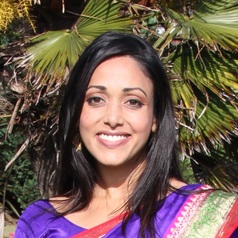
Nilufar Ahmed
Background: I have a degree in Psychology, an MSc in Applied Psychology and PhD in Human Geography. I am a Chartered Psychologist and also work as an Intersectional Psychotherapist in private practice. I have worked in community organisations and held various research and teaching positions in universities across England and Wales. I hold positions at a number of charities across the UK.
My research interests are areas of expertise: human behaviour, mental health, inequalities, equality and inclusion, ageing, ethnicity, religion (esp Muslims in the UK), gender and place, racism and representation in Higher Education
My particular interest is in the dynamic interaction of people and place, how people transform the spaces the inhabit, and in turn and changed by those spaces.
My current research focuses on developing trauma informed care and decolonisation of the curriculum.
Less ![]()

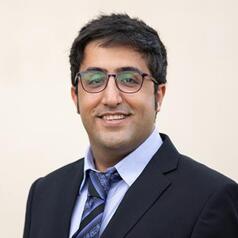
Nima Izadyar
Lecturer, Victoria University
Nima Izadyar is a Lecturer with the School of Built Environment, College of Sport, Health and Engineering (CoSHE)., Victoria University. His Field of Research is in Building Science and Techniques, focusing on energy-efficient buildings, ventilation, indoor environment quality, Computational Fluid Dynamics, Building Surveying, and renewable energy.
Less ![]()
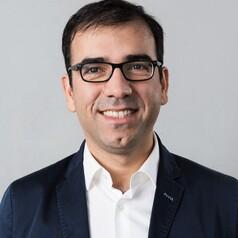

Nina Dombrowski
Postdoctoral Fellow, University of Texas at Austin
I am a postdoctoral researcher at the University of Texas Marine Science Institute in Port Aransas. My research aims to understand the lifestyle of marine bacteria using the most recent “omic”-techniques. More specifically, my current project tries to unravel the metabolic capacities present in bacterial genomes and their metabolic potential. One topic I am working on deals with bacteria enriched during the Deepwater Horizon oil spill, addressing the question how bacteria cope with oil contamination.
I am a biologist with a background in molecular biology. More specifically, I graduated in plant genetics and during my PhD I obtained an additional background in microbiology to better understand how microbes and plants interact. My current goal is to gain a better background in bioinformatics to better be able to tackle the research questions I am interested in.
Currently, I want to understand:
What are the microbes that can be found in marine ecosystems?
How can we use “omics” to uncover novel bacterial lineages?
What are their genomic and metabolic features?
Where I come from:
I did my PhD (just finished this year, in 2015) at the Max-Planck Institute for Plant Breeding Research in Cologne. I investigated how rhizosphere and root-bacterial communities interact with Arabis alpina and two Brassicaceae plant species. I worked on 16S rRNA gene community profiling and also isolated numerous bacteria. The research questions of my PhD were (in a simplified way):
How are bacterial communities affected by their surroundings/ what determines how bacterial communities assemble on plant roots
(i.e. plant species, soil type, flowering time…)?
What is the effect of synthetic bacterial communities on plant growth?
Less ![]()
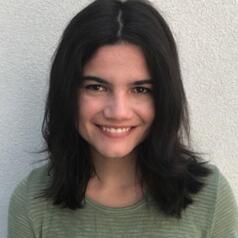
Nina Flores
Ph.D. Student Researcher in Environmental Health, Columbia University
I graduated in Spring 2020 with my B.S. Computational Biology from the University of Texas at Austin. In Fall 2020, I entered the PhD program in Environmental Health Sciences at Columbia University Mailman School of Public Health and expect to graduate in the Summer of 2025
Less ![]()
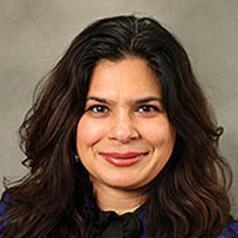
Nina Mahmoudian
Associate Professor of Mechanical Engineering, Purdue University
Dr. Nina Mahmoudian's team develops innovative practical solutions for control of individual and multiple autonomous vehicles in harsh dynamic environments, addressing challenges that currently limit the use of autonomous vehicles in unknown complex situations.
Research Interests
Robotics
Marine Robotics
Unmanned Systems
Energy Autonomy
Systems Design
Coordination and Controls
Less ![]()
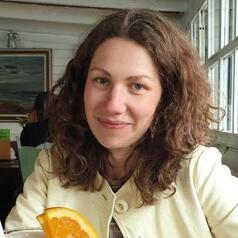
Nina Serova
Research Officer & PhD Candidate in Anthropology, UNSW Sydney
Nina is a PhD Candidate in Anthropology at the University of Melbourne. She is also a Research Officer at the University of New South Wales, working on the Gaawaadhi Gadudha project.
Less ![]()

Nina Sivertsen
Dr Nina Sivertsen is an Indigenous Sámi woman living and working on Kaurna Lands in Australia. She holds a position as Senior Lecturer (Nursing), Flinders University, and Associate Professor, Arctic University of Norway. Her academic work encompasses curriculum design and implementation, with cultural responsiveness in the centre to positively engage students in learning about First Nations health.
In her research, she focuses on community and health systems research in partnership with First Peoples and contributes to restorative policy and practice, especially around women’s health in a socio-political context of assimilation and colonisation. She works in inter-Indigenous settings together with First Nations health professionals from around the world to improve healthcare and health outcomes for all First Nations people.
Nina’s work in the nexus of Indigenous women’s identities, culture, health, and education has led to international recognition as evidenced by her partnerships in Norway, Canada and Australia. She is the recipient of numerous awards; amongst them the 2021 Women in Innovation Award, the 2020 Vice-Chancellor’s Award for Innovation in Teaching, as well as being a finalist of the 2021 AFR National Teaching Excellence Awards.
Dr Sivertsen is an active member of many community organisations and academic committees providing space for Indigenous voices within strategic planning, governance, and curriculum. She works with research higher degree students to create new knowledge and build capacity enabling students to fulfil their potential as independent academics and researchers of the future.
Less ![]()

Nina Sylvanus
Associate Professor of Anthropology, Northeastern University
Nina Sylvanus is an associate professor of anthropology at Northeastern University.
She is the author of 'Patterns in Circulation: Cloth, Gender and Materiality in West Africa' (University of Chicago Press). The book tells the rich story of Dutch wax cloth, its global circuits of production and design while highlighting the important role of West African women as agents of taste and history in this global story.
Less ![]()

Nina Thomas
Assistant Professor of Pulmonary Sciences and Critical Care, University of Colorado Anschutz Medical Campus
Nina Thomas MD specializes in Pulmonary Disease and Critical Care Medicine at UCHealth Pulmonary Nodule Clinic
Less ![]()
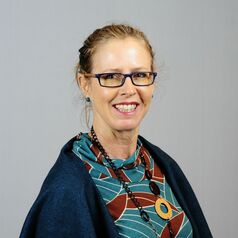
Nina Van Dyke
Principal Research Fellow at the Mitchell Institute, Victoria University
Since receiving my PhD in 2000, I have worked in research and policy in the areas of public health and education for academic institutions, not-for-profits, and private research companies in the United States and Australia. I have particular interests and expertise in preventive health, survey methodology and research with and about young people.
Less ![]()
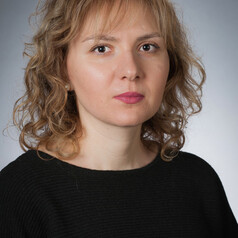
Nino Antadze
Associate Professor, Environmental Studies, University of Prince Edward Island
Dr. Nino Antadze is an Associate Professor of Environmental Studies. Dr. Antadze studies planning processes of energy facilities and issues associated with energy poverty. Dr. Antadze earned a PhD in urban and regional planning from the University of Waterloo, Canada. She also holds an MSc in Environmental Management and Policy from Lund University, Sweden and an MSc in Environmental Sciences and Policy from Central European University, Hungary.
Less ![]()
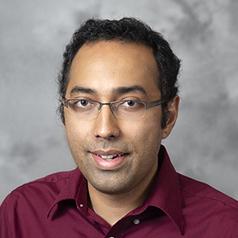
Niranjan Shivaram
Assistant Professor of Physics and Astronomy, Purdue University
Research in my group is focused on using coherent extreme-ultraviolet and soft x-ray light generated by the process of high harmonic generation (HHG) to study electron dynamics in atoms, molecules and materials on femtosecond to attosecond time scales. We use the HHG source in combination with wavelength tunable laser pulses from an optical parametric amplifier to obtain time-resolved information using multiple probing schemes. Current focus is on studying ultrafast dynamics near conical intersections in molecules using a new approach based on Optical Kerr-effect Spectroscopy. This will be complemented by photo-electron spectroscopy experiments using a velocity-map imaging spectrometer. In addition to this, we are interested in using X-ray Free Electron Laser sources such as the Linac Coherent Light Source (LCLS) to study ultrafast dynamics in molecular systems.
Less ![]()
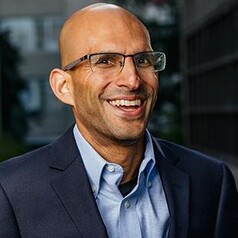
Nirav Pandya
Associate Professor, Pediatric Orthopaedics and Sports Medicine, University of California, San Francisco
Dr. Nirav K. Pandya MD, a pediatric orthopedic surgeon and sports medicine specialist within the UCSF Dept. of Orthopaedic Surgery, is Vice-Chair of Pediatric Operations and Section Chief of the Division of Pediatric Orthopaedics. Dr. Pandya joined the UCSF Department of Orthopaedic Surgery in 2012. His areas of interest include sports medicine, arthroscopy, and pediatric trauma as well as general pediatric orthopaedics.
Originally from Chicago, Dr. Pandya received his undergraduate degree from the University of Chicago where he was elected to the Phi Beta Kappa honor society. While at the University of Chicago, Dr. Pandya was a member of the track and field team, and was elected captain his senior year. He remains one of the top 10 triple jumpers in the school’s history. He then received his medical degree from the University of Chicago Pritzker School of Medicine.
While in medical school, he served as an assistant coach for the University of Chicago track and field team, coaching several national qualifiers in the long and triple jump. Dr. Pandya then went on to complete his orthopaedic surgery residency at the Hospital of the University of Pennsylvania in Philadelphia. He served as academic chief resident his final year, and was the recipient of the DeForest Willard Award for outstanding performance. He then completed a fellowship in pediatric orthopaedic surgery at Rady Children’s Hospital in San Diego where he was awarded the Lena Sefton Clark endowed fellowship award, and received further training in general pediatric orthopaedics, pediatric sports medicine, and hip preservation surgery.
Dr. Pandya has authored over 60 peer-reviewed publications and multiple book chapters, and speaks regularly at national conferences.
Dr. Pandya also co-hosts 6-8 Weeks: Perspectives on Sports Medicine. This podcast presents the people and stories behind sports medicine at UCSF and our community of learners.
Less ![]()

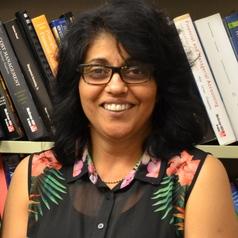
Nirmala Nath
Senior Lecturer, School of Accountancy, Te Kunenga ki Pūrehuroa – Massey University
Nirmala came to Massey from Waikato University where she taught part-time. Prior to this, she taught at the University of South Pacific in Fiji. She researches in the areas of performance management systems, public sector performance audits and accountability, qualitative research methods and hermeneutics. Her research has a management accounting focus.
Less ![]()
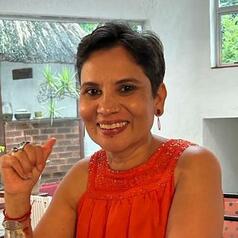
Nirvana Pillay
Visiting Researcher Wits School of Public Health, University of the Witwatersrand
I currently hold a Visiting Researcher position at the School of Public Health, University of the Witwatersrand (Wits). I am also a Director of the Sarraounia Public Health Trust, a non-profit research consultancy. Between 1995 and 2005 I held Lecturer positions first at the Department of Sociology, UKZN and and then Wits. I left the academy to consult in the areas of health and development, which I continue to date. From 2015-2019 I completed a PhD in Public Health at Wits and continue to work at the intersection of research and it's translation into policy and practice. As a visiting researcher, I supervise Masters and PhD students, teach, collaborate and offer other academic support at the Department of Sociology and the School of Public Health, Wits.
Less ![]()

Nishtha Manocha
EDHECinfra Senior Research Engineer, EDHEC Business School
Ph.D. Civil Engineering - Senior Research Engineer focused on the role of ESG in the infrastructure sector. Her experience spans the fields of hydrology, climate adaptation and water policy. She completed her PhD from the National University of Singapore. Her dissertation titled ‘Infrastructure Investment under Deep Uncertainty’ focused on decision-making pertaining to infrastructure investments under climatic and anthropogenic uncertainties. She holds a master’s degree in Hydraulic Engineering and Water Resource Management also from the National University of Singapore.
Less ![]()
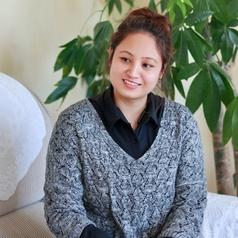
Nita Dyola
Post-doctoral fellow, Département des Sciences Fondamentales, Université du Québec à Chicoutimi (UQAC)
I am currently working as a post-doctoral fellow at the University of Québec at Chicoutimi. In 2023, I was awarded two scholarships; PBEEE/Bourses de court séjour de recherche ou perfectionnement and Mitacs Globalink Research Award, to conduct research in Canada. My research focuses on ecology, covering various aspects such as invasive alien plant species, stoichiometric traits (the ratio of carbon, nitrogen, and phosphorus), functional traits, and their role in ecosystem functioning. I received my doctoral degree in ecology from the Institute of Tibetan Plateau Research at the University of Chinese Academy of Science (UCAS) in Beijing, China. I got a merit scholarship for the doctoral program from the CAS-TWAS President's Fellowship Program for international students in China. During my PhD, I collected intensive field-based data on tree species at a fine scale from tropical to alpine vegetation in the eastern Himalayas. The study focused on the diversity of trees, functional traits, and their role in shaping forest biomass across biomes in the Kangchenjunga landscape. During my master's program, I studied the impact of invasive alien plant species on the regeneration and growth of native plants in Panchase, western Nepal, as part of the EbA (Ecosystem-based Adaptation) project.
Less ![]()
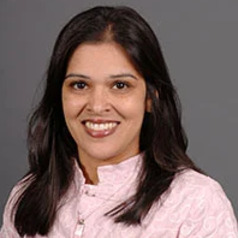
Nita Prasad
Professor of History, Quinnipiac University
Nita Verma Prasad is Professor of History and Director of Asian Studies, specializing in the social history of British colonial India. She completed her undergraduate education at the University of California at Berkeley before obtaining a Master's Degree in Middle Eastern history from Georgetown University and a doctorate in South Asian history from the University of California at Berkeley. She has published on various issues in modern Indian history, including women in the British colonial courts, diasporic communities in the Indian Ocean region, Hindu-Muslim relations on the subcontinent, and intersectional analyses of Bollywood film. She is currently working on a project that examines gender within the context of the British colonial medical establishment in India.
Less ![]()
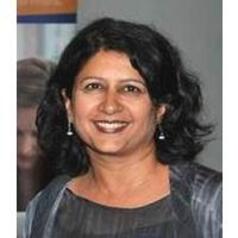
Nitha Palakshappa
Professor of Marketing and Sustainability, Massey University
Nitha Palakshappa is Associate Head of School and Professor of Marketing and Sustainability in the School of Communication, Journalism and Marketing. Her research interests sit broadly within an umbrella of sustainability and social responsibility. Nitha adopts qualitative inquiry to understand how sustainability and responsibility manifest in contemporary systems of production and consumption - with a special interest in the fashion and food sectors. She leads the Centre for Responsibility, Ethics and Sustainability (CRES). CRES provides a forum for business, government and society to understand the importance of ethics, social responsibility, and sustainability initiatives/strategies in enhancing reputation, profitability, and competitiveness.
Less ![]()

Nitin Deckha
Lecturer in Justice Studies, Early Childhood Studies, Community and Social Services and Electives, University of Guelph-Humber
Less ![]()

Nitish Boodhoo
Research Associate, Department of Pathobiology, University of Guelph
Dr. Nitish Boodhoo is a Research Associate in the Department of Pathobiology, Ontario Veterinary College, at the University of Guelph. Dr. Boodhoo is a viral immunologist that specializes in avian immunology, viral transmission studies and next generation vaccine development for application in avian and non-avian species.
Education:
B.Sc - University of Guelph (2010) - animal biology
M.Sc - University of Guelph (2012) - immunology and toxicology
Ph.D - Reading University (2018) - avian immunology
Postdoc - University of Guelph (2019-2022) - avian mucosal vaccine studies
Research associate - University of Guelph (2022-present) - next generation vaccine design for application in chickens
To Date, Dr. Boodhoo has published 28 research/review articles in various areas of microbiology and immunology.
Less ![]()

Niusha Jones
Assistant Professor of Marketing, Boise State University
Niusha Jones is an assistant professor of marketing at Boise State University College of Business and Economics. Her academic research focuses on consumer motivations and the psychology of brand and product design, with a particular interest in the effects of design elements on shaping consumers' feelings, thoughts, and behaviors. Before joining academia, Niusha spent several years working as a marketing researcher, manager, and consultant for leading international companies.
Less ![]()
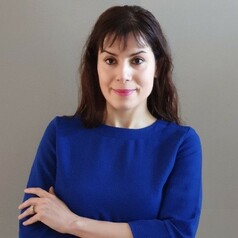
Niusha Shafiabady
Associate Professor in Computational Intelligence, Charles Darwin University
Associate Professor Niusha Shafiabady is an internationally recognized expert in the field of Computational Intelligence with many years of professional experience in both academia and industry.
She has held various academic leadership positions for the past 15 years. In addition, she has been involved in the Computational Intelligence industry for 23 years as project consultant/manager, associate head of school, Dean, CEO, chief scientific advisor and ethics committee and academic board member. She has held leadership positions, both in academia and industry.
She is the inventor of a European patented optimization algorithm named after herself and is the copyright holder of “Artificial Intelligence Development Solutions”.
She has published many research articles, particularly in Tier 1 journals, supervised more than 11 Higher Degree Research students and has played significant roles in USD3.3M of grants and is the recipient of several awards and credentials. She has been a finalist for Women in AI Award (WAI 2021) in Australia and New Zealand in the category of ‘AI in Defence’, and Women in Innovation (Winnovation 2020) Award in South Australia for developing Ai-Labz.
She has received post-graduate certificate in pedagogy from the University of Nottingham and is a Fellow of the Higher Education Academy of the United Kingdom.
Her key areas of expertise are design and development of smart algorithms for data analysis and interpretation, prediction of different phenomena, clustering and classification of unorganized data and creating smart decisionmaking systems for different applications. The highlight of her work is blending academic knowledge and research findings into industrial applications.
She has created expert decision-making systems for a variety of applications using Artificial Intelligence for solving real-life problems in the following areas:
- Oil & Gas: Pipeline failure detection
- Banking and Finance: Loan repayment prediction
- Transportation: Optimal positioning of police vehicles cameras
- Meteorology: Prediction of wind direction & speed and prediction of flood
- Renewable Energy: Hybrid green energy storage systems
- Economy: Prediction of national investment return
- Environmental Hazards: Power plants explosion and leakage prediction
- Commodity: North Brent crude oil price prediction
- Construction: Crane optimal positioning and maximum load capacity
- Department of Justice: Prediction of rehabilitation of detainees
- Stocks: Prediction of equity prices
3
Niusha Shafiabady, PhD.
Curriculum Vitae
- Healthcare: Prediction of diseases using recorded data
Her expertise includes but is not limited to:
- Artificial Intelligence
- Machine Learning
- Data Analysis
- Modelling
- Deep Learning
- Expert System Design
- Optimization
Her ultimate vision is to utilize her expertise in computational and artificial intelligence for improvement of human
life.
Less ![]()

Niven Winchester
Professor of Economics, Auckland University of Technology
Professor Winchester is passionate about using quantitative analysis to make the world a better place. He is an expert in climate policy analysis using computable general equilibrium models. Using these techniques, he has assisted governments in several countries to develop strategies to reduce greenhouse gas emissions. Professor Winchester built the Climate Policy Analysis (C-PLAN) model used by the Climate Change Commission to provide policy advice for the New Zealand government.
Professor Winchester also has an interest in sports economics. His research on sports ranking systems was the catalyst for the change to the bonus point system in The Rugby Championship and Super Rugby in 2016.
Professor Winchester is also Co-Editor of the Journal of Global Economic Analysis, a Senior Fellow at Motu Economic & Public Policy Research, and a Principal at Vivid Economics. Prior to joining AUT, he was a Principal Research Scientist at the Massachusetts Institute of Technology.
Less ![]()
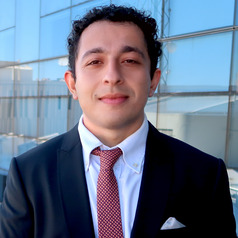
Niyazi Arslan
Ph.D. Candidate in Speech and Hearing Science, Arizona State University
I am Niyazi Arslan, a third-year Ph.D. student in the Speech and Hearing Science program at Arizona State University. I am currently conducting research in the Auditory Implant Laboratory directed by Dr. Xin Luo. I have a sincere interest in the technological applications of hearing science, in particular with cochlear implants (CIs). Making a positive impact on people with hearing loss is the source of my deep motivation for research in this field.
https://niyaziarslan.carrd.co/#
Less ![]()
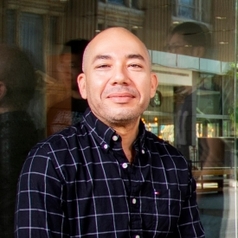
Nizar Bouguila
Professor, Concordia Institute for Information Systems Engineering, Concordia University
Nizar Bouguila is a Professor at the Concordia Institute of Information Systems Engineering at Concordia University in Montreal, Canada. Nizar's research concentrates on machine learning, data mining, computer vision, and image processing.
Less ![]()
- Market Data























